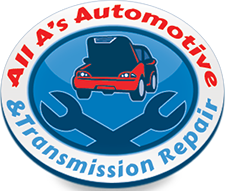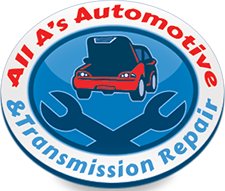Auto Transmission Control Module: 6 Signs It Needs Replacing

 Do you drive a modern car with an automatic transmission? Did you know your vehicle’s transmission system is a complex engineering marvel filled with interconnected parts, sensors, fluids, and even a computer system? It’s true. We have come such a long way from the two-speed (plus reverse) Model Ts of the past. And while modern vehicles are designed by highly educated engineers and built with quality materials, sometimes parts fail and require replacement. If your car is experiencing hard shifting, it may be a bad transmission control module – keep reading for more info on TCM failure and related auto repairs.
Do you drive a modern car with an automatic transmission? Did you know your vehicle’s transmission system is a complex engineering marvel filled with interconnected parts, sensors, fluids, and even a computer system? It’s true. We have come such a long way from the two-speed (plus reverse) Model Ts of the past. And while modern vehicles are designed by highly educated engineers and built with quality materials, sometimes parts fail and require replacement. If your car is experiencing hard shifting, it may be a bad transmission control module – keep reading for more info on TCM failure and related auto repairs.
What Is A Transmission Control Module?
The transmission control module (TCM) is the operating system or ‘brain’ controlling your automatic transmission. The TCM communicates with the main computer (ECU/ECM) to regulate gear shifting using electrical and hydraulic methods. Located in your engine compartment, the TCM is basically an onboard computer that solely operates your vehicle’s transmission components.
How Does A TCM Work?
The TCM receives data from numerous sensors (engine load, throttle position, transmission fluid, wheel speed) and interprets the information to control the torque converter, gear shifting, and clutch engagement. It continuously adjusts these variables to achieve optimal performance and fuel efficiency, while also prolonging the lifespan of your vehicle’s transmission components.
Many modern vehicles have TCMs with adaptive learning capabilities, so they automatically adjust gear shifts based on your driving style. For gentle drivers, the TCM shifts more smoothly, while more assertive drivers experience quicker gear changes.
Drive Modes
Auto manufacturers introduced Drive Modes as a user-friendly way to quickly adjust your car’s dynamics to accommodate specific road conditions or one’s driving style. Vehicles equipped with changeable driving modes (ie, Eco, Comfort, Sport, Track) have a TCM that changes its gear shifting parameters to match each mode. Depending on the vehicle, drive modes can change the settings for:
- Performance
- Steering
- Suspension
- Throttle
- Transmission
What Causes TCM Failure?
Generally speaking, transmission control modules last a long time, especially in vehicles with routine maintenance. However, numerous factors can contribute to TCM failure. Below are a few common reasons to be aware of:
- Age: As your vehicle ages, the internal bits of the transmission control module can become brittle, corroded, or damaged from regular use over time.
- Electrical Issues: Damaged wiring, loose connections, and short circuits often disrupt data transfer between the various sensors and the TCM.
- Heat Exposure: A poorly functioning engine cooling system can overheat your vehicle’s transmission, causing damage to the components.
- Water Contamination: Water or moisture build-up from leaking components or environmental factors (like heavy rains and flooding) can lead to corrosion and short circuits to the TCM and other transmission components.
- Wear and Tear: Your vehicle’s TCM works continuously every time you drive. It is normal for automotive components to succumb to normal wear and tear.
6 Signs It’s Time To Replace Your TCM
Identifying the signs of a failing transmission control module early can help you prevent additional vehicle damage and the need for expensive auto repairs.
1. Dashboard Warning Lights
Dashboard warning lights are one of the most common signs of TCM failure. Different vehicle makes, models, and years have different warning lights. Most owner’s manuals have information on which dashboard indicator lights your specific vehicle uses. It’s best to schedule a diagnostic appointment any time the Check Engine light, Transmission light, or other transmission-related indicators illuminate your dashboard.
2. Engine Stalling or Delayed Acceleration
Your engine may stall during gear shifts if the data from the transmission system doesn’t match the engine speed. Since the TCM relies on data to perform gear shifts, any disruption to the flow of that information can create delayed acceleration, no acceleration (limp mode), or engine shut off.
3. Hard Shifting
In general, changing gears should be a smooth transition, without grinding, lurching, or delays. If you experience noisy, jerky, or hard shifting, the TCM may need replacing.
4. Inconsistent Gear Changes
A malfunctioning TCM can cause your transmission to slip out of gear, have trouble staying in the correct gear, or even refuse to go into or out of a specific gear (like Reverse). Cases like this require auto repairs, so be sure to schedule a diagnostic appointment right away.
5. Low Transmission Fluid
Low transmission fluid levels can trigger one or more warning lights on your dashboard. Inadequate fluid can also cause the transmission to overheat and create excessive wear to the transmission system’s internal components. If you do not service your vehicle’s transmission fluid for an extended period, the TCM may fail.
6. Poor Fuel Efficiency
TCM failure causes incorrect gear changes, so the engine may run too hard at high RPMs, resulting in poor fuel efficiency.
Transmission Auto Repairs in Midland, MI
Performing routine maintenance on your vehicle can help reduce TCM failure. Always follow the factory-recommended service intervals found in your owner’s manual. It’s also important to be aware of changes in your car’s behavior and overall performance. If you have questions or concerns about your vehicle, give All A’s Automotive & Transmission Repair in Midland, MI, a call. Our skilled service technicians are happy to discuss transmission-related auto repairs with you. We can quickly determine if a bad transmission control module is causing your vehicle’s hard shifting or if another issue is the problem. We specialize in transmission service and auto repairs in the Midland, MI area.
Schedule Service
Call us at (989) 631-4672 or visit our website to schedule your next appointment.
Posted in: Transmission
Leave a Comment (0) ↓
